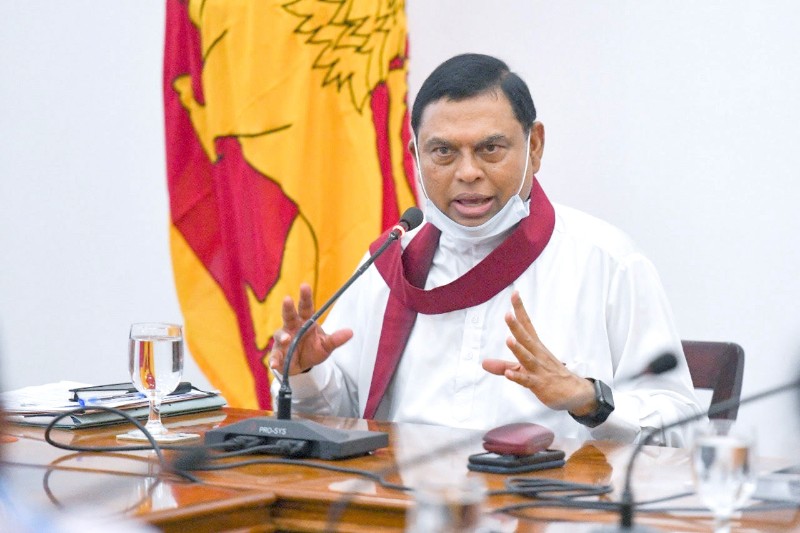A potential Government formed by the Sri Lanka Podujana Peramuna (SLPP) would champion a business-friendly environment free from corruption and social ills, National Organiser Basil Rajapaksa said, calling on the business community to join in a “decade of development.”
In an interview with Daily FT, Rajapaksa highlighted that the economy would be a major focus of the Government during the next five years, provided the SLPP wins the Parliamentary Elections on 5 August, and that under President Gotabaya Rajapaksa, much will be done to foster a conducive environment for businesses, and to iron out regulatory bottlenecks they may face.
“I want to give a message to all Sri Lankans, especially the business community, that President Gotabaya Rajapaksa will create a business-friendly environment in the country, and it will be a country that is without corruption, drug trafficking, and underworld gangs. This will be the decade of development, of economic revival. So please join us,” he said.
He also insisted that much was done during COVID-19 to protect the economy, and emphasised that an SLPP-led Government would promote local companies on investment opportunities. Rajapaksa said that Foreign Direct Investment (FDI) could be funnelled by local companies as well.
“I am not a big fan of FDIs. I believe that investments must come. But I am not saying it has to be from foreign sources. There are local investors who can start a lot of businesses. We have to encourage local entrepreneurship. FDI is not the only way for us to grow.”
Despite being confident of a victory at the upcoming elections, Rajapaksa was nonetheless cautious of predicting whether they would get the coveted two-thirds majority. If it was achieved, however, Rajapaksa reiterated that the Government would not just stop at repealing the 19th Amendment, but would also attempt to bring in a new Constitution. He also opined that attempts will be made to preserve the positives of both the 19th Amendment and the existing Constitution. Discussions on the fate of the Executive Presidency will follow after the election, he assured.
“I still do not have confidence of getting a two-thirds majority, especially because that is a big task. I think it is up to the people to decide whether they want to give us a two-thirds majority.”
Responding to accusations of family rule, Rajapaksa noted that it was the people’s mandate, and that there had been some level of effort to understand what had displeased the people at the previous Presidential Election in 2015. However, Rajapaksa was confident that the tide had since reversed, and all the candidates from his family stood a good chance of being elected to Parliament on 5 August.
“Unfortunately or fortunately, people sometimes elect Rajapaksas. If not good, people will not get elected. That is what happened in 2015. So now we have corrected ourselves and come back. People might vote for all the Rajapaksa candidates this time.”
Giving his views on how the SLPP may evolve over the next few years, Rajapaksa stressed that he wished to see the party consolidating its power base.
“I want our party to be a party like the Chinese Communist Party (CCP) and how they act. The party has its say because the party has responsibility. We can also be like the Indian Bharatha Janatha Party (BJP). We have learned from many political parties in the world. The best two are the BJP and CCP.”
The former Parliamentarian and Cabinet Minister was unenthusiastic about returning to his earlier roles, insisting that he had achieved much since his exit from Parliament in 2015, and was keen to continue on the same path in the future.
“Since 2015, I have seen a different way on how to be in politics without going to Parliament. I see some other people have now also started doing the same. It is a trend I started by not going to Parliament. I have made a political party, won two national elections, and now a third, which we will also win. So you can do lots of things without going to Parliament. I am very happy; I see Mangala Samaraweera has taken a similar path. Let all people try to do that.”
(FT)

